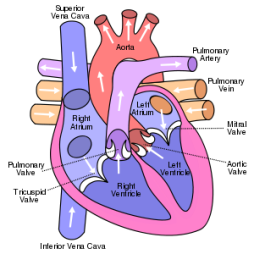| When my12 weeks of FMLA leave was recently approved,
I found out I would only be paid if City of Jacksonville employees donated their own leave time to me.
That's right, FMLA is unpaid leave.
I will go three months without pay unless City employees donate.
I wanted to share the facts about FMLA with everyone.
This is a federal program that many people know nothing about.
For more information, visit http://www.dol.gov/elaws/esa/fmla
Frequently Asked Questions and Answers
Q: How much leave am I entitled to under FMLA? If you are an "eligible" employee, you are entitled to 12 weeks of leave for certain family and medical reasons during a 12-month period.
Q: Does the law guarantee paid time off? No. The FMLA only requires unpaid leave. However, the law permits an employee to elect, or the employer to require the employee, to use accrued paid vacation leave or, subject to certain restrictions, sick or family leave, for some or all of the FMLA leave period. When paid leave is substituted for unpaid FMLA leave, it may be counted against the 12-week FMLA leave entitlement.
Q: May I take FMLA leave for visits to a physical therapist, if my doctor prescribes the therapy? Yes. FMLA permits you to take leave to receive "continuing treatment by a health care provider," which can include recurring absences for therapy treatments such as those ordered by a doctor for physical therapy after a hospital stay or for treatment of severe arthritis.
Q: Which employees are eligible to take FMLA leave? Employees are eligible to take FMLA leave if they have worked for their employer for at least 12 months, and have worked for at least 1,250 hours over the previous 12 months, and work at a location where at least 50 employees are employed by the employer within 75 miles.
Q: Do the 12 months of service with the employer have to be continuous or consecutive? No. The 12 months do not have to be continuous or consecutive; all time worked for the employer is counted.
Q: Do the 1,250 hours include paid leave time or other absences from work? No. The 1,250 hours include only those hours actually worked for the employer. Paid leave and unpaid leave, including FMLA leave, are not included.
Q: Do I have to give my employer my medical records for leave due to a serious health condition? No. You do not have to provide medical records. The employer may, however, request that, for any leave taken due to a serious health condition, you provide a medical certification confirming that a serious health condition exists.
Q: Can my employer require me to return to work before I exhaust my leave? Subject to certain limitations, your employer may deny the continuation of FMLA leave due to a serious health condition if you fail to fulfill any obligations to provide supporting medical certification. The employer may not, however, require you to return to work early by offering you a light duty assignment.
Q: Are there any restrictions on how I spend my time while on leave? Employers with established policies regarding outside employment while on paid or unpaid leave may uniformly apply those policies to employees on FMLA leave. Otherwise, the employer may not restrict your activities. The protections of FMLA will not, however, cover situations where the reason for leave no longer exists, where the employee has not provided required notices or certifications, or where the employee has misrepresented the reason for leave.
Q: Can my employer make inquiries about my leave during my absence? Yes, but only to you. Your employer may ask you questions to confirm whether the leave needed or being taken qualifies for FMLA purposes, and may require periodic reports on your status and intent to return to work after leave. Also, if the employer wishes to obtain another opinion, you may be required to obtain additional medical certification at the employer’s expense, or rectification during a period of FMLA leave. The employer may have a health care provider representing the employer contact your health care provider, with your permission, to clarify information in the medical certification or to confirm that it was provided by the health care provider. The inquiry may not seek additional information regarding your health condition or that of a family member.
Q: Can my employer refuse to grant me FMLA leave? If you are an "eligible" employee who has met FMLA’s notice and certification requirements (and you have not exhausted your FMLA leave entitlement for the year), you may not be denied FMLA leave.
Q: Will I lose my job if I take FMLA leave? Generally, no. It is unlawful for any employer to interfere with or restrain or deny the exercise of any right provided under this law. Employers cannot use the taking of FMLA leave as a negative factor in employment actions, such as hiring, promotions or disciplinary actions; nor can FMLA leave be counted under "no fault" attendance policies. Under limited circumstances, an employer may deny reinstatement to work - but not the use of FMLA leave - to certain highly-paid, salaried ("key") employees.
Q: Are there other circumstances in which my employer can deny me FMLA leave or reinstatement to my job? In addition to denying reinstatement in certain circumstances to "key" employees, employers are not required to continue FMLA benefits or reinstate employees who would have been laid off or otherwise had their employment terminated had they continued to work during the FMLA leave period as, for example, due to a general layoff. Employees who give unequivocal notice that they do not intend to return to work lose their entitlement to FMLA leave.
Employees who are unable to return to work and have exhausted their 12 weeks of FMLA leave in the designated "12 month period" no longer have FMLA protections of leave or job restoration. Under certain circumstances, employers who advise employees experiencing a serious health condition that they will require a medical certificate of fitness for duty to return to work may deny reinstatement to an employee who fails to provide the certification, or may delay reinstatement until the certification is submitted. |
Monday, December 22, 2008
FMLA: Family Medical Leave Act (originally posted Dec 17)
Subscribe to:
Post Comments (Atom)

.svg.png)

1 comment:
Thank you so much for setting up this blog. The more information the better! My husband has DC as well - and nobody can seem to figure out what happened either. I was wondering if you know anything about the Stem Cell Clinical Trial at the University of Utah - apparently they extract your bone marrow, cultivate some stem cells, and inject it straight into your heart muscle. I just heard about it through my Google alerts (which is how I found your blog.). Good luck to you!
Post a Comment